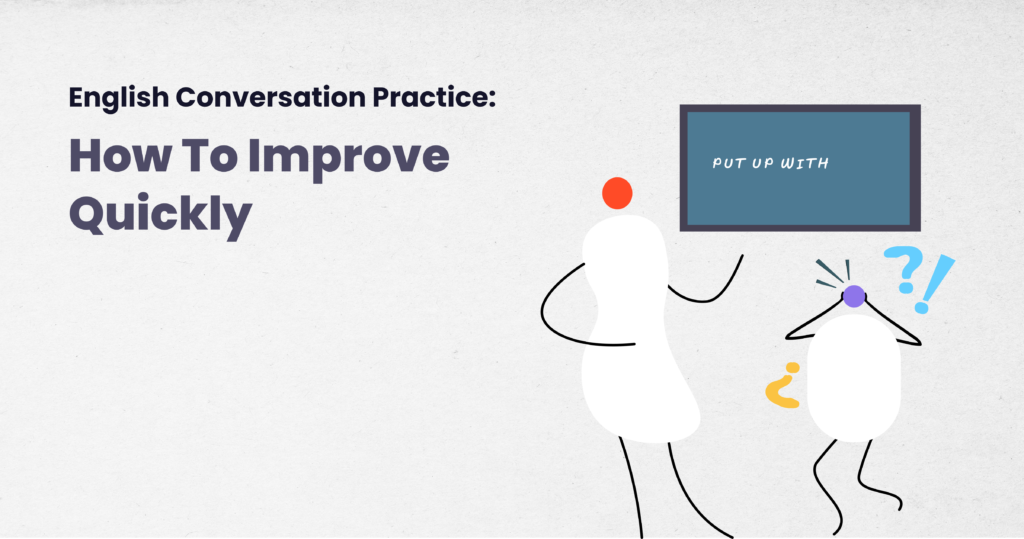Becoming fluent in English requires consistent effort and effective methods, especially when it comes to conversational skills. Speaking confidently in English is one of the most crucial aspects of mastering the language, as it allows you to express yourself clearly in various social and professional situations. The good news is that you don’t need to move to an English-speaking country or enroll in expensive courses to improve. With the right strategies and regular practice, you can boost your English conversation skills, even from the comfort of your home.
Here’s a step-by-step guide to improving your English conversation skills effectively.
1. Practice Speaking Every Day
The key to improving your English conversation skills is regular practice. Even if you don’t have a conversation partner, you can still speak English daily. Narrate your activities, describe your surroundings, or express your thoughts out loud.
For example:
- While making tea, say, “I’m boiling water and adding tea leaves.”
- As you plan your day, think out loud: “Today, I will clean the house and finish my assignments.”
The more you speak, the more comfortable you’ll become with forming sentences naturally.
2. Shadow Native Speakers
Shadowing is an effective technique to improve pronunciation, rhythm, and intonation. Watch videos, listen to podcasts, or follow interviews native English speakers. Repeat what they say immediately after them, mimicking their tone and style.
For example, if a speaker says, “I had a great weekend,” pause the video and say the sentence exactly as they did. This exercise helps you develop a natural flow of conversation and familiarize yourself with common phrases.
3. Learn Common Phrases and Expressions
Conversations are more than just grammar and vocabulary; they’re about how you put words together in real-life situations. Focus on learning commonly used phrases and expressions that can help you navigate various contexts.
Examples include:
- “How’s it going?” (informal greeting)
- “Could you repeat that, please?” (if you didn’t understand something)
- “What do you think about this?” (to invite someone’s opinion)
Memorizing phrases like these makes it easier to engage in conversations without overthinking your words.
4. Record and Review Your Conversations
Recording yourself while speaking English can be a game-changer. Pick a topic, record your thoughts for 1–2 minutes, and then play it back. Pay attention to your pronunciation, grammar, and fluency.
Ask yourself:
- Are you speaking too fast or too slowly?
- Are your sentences clear and grammatically correct?
- Are there words or phrases you struggled with?
This process helps you identify areas for improvement and track your progress over time.
5. Engage in Role-Playing Scenarios
Role-playing is an excellent way to simulate real-life conversations. Imagine situations like ordering food at a restaurant, asking for directions, or attending a job interview. Practice how you would respond in English.
For example:
- If you’re pretending to order at a café, say: “Hi, I’d like a cappuccino and a croissant, please.”
- In a job interview role-play, practice saying: “I’m a dedicated team player with experience in project management.”
Role-playing builds your confidence and prepares you for real-world conversations.
6. Find a Conversation Partner
Practicing with someone else is one of the best ways to improve quickly. If you don’t have a native English-speaking friend, join online language exchange platforms or virtual English-speaking groups.
You can also practice with non-native speakers who are learning English. Engaging in conversations with others helps you develop listening skills, respond in, and overcome the fear of making mistakes.
7. Watch and Mimic Conversations
Movies, TV shows, and YouTube videos are treasure troves of conversational English. Pay close attention to how characters or speakers communicate, and mimic their dialogues. Focus on:
- Their sentence structure
- How they use idioms or slang
- Their tone and body language
For instance, if you’re watching a romantic comedy, practice repeating lines like, “That’s so thoughtful of you!” or “I can’t believe this is happening!” Mimicking dialogues immerses you in conversational English and helps you pick up natural speech patterns.
8. Use Technology to Enhance Your Practice
Technology can accelerate your learning process. Apps like Englebook provide interactive exercises and conversation practice tailored to your level. With features like real-time feedback and speech recognition, you can refine your pronunciation, build confidence, and track your progress in a structured, convenient way.
Englebook also includes simulated conversation scenarios, helping you practice speaking in realistic settings, such as interviews, casual chats, or presentations. Incorporating such tools into your routine can significantly enhance your conversational skills.
9. Don’t Fear Mistakes
One of the biggest barriers to improving English conversation skills is the fear of making mistakes. Understand that mistakes are a natural part of the learning process.
Focus on communicating your message rather than speaking perfectly. The more you practice, the more confident you’ll become, and over time, the errors will decrease.
10. Stay Consistent and Measure Progress
Improving conversational skills doesn’t happen overnight, but with consistent effort, you’ll notice progress. Keep a journal of your practice sessions, set achievable goals (e.g., 10 minutes of speaking daily), and celebrate milestones.
Mastering English conversation skills is about consistent practice, engaging in meaningful exercises, and staying motivated. Whether you’re speaking out loud to yourself, shadowing native speakers, or using tools like Englebook, each effort brings you closer to fluency.
Remember, progress comes with persistence. Start today with these tips and exercises, and you’ll soon find yourself speaking English confidently and effortlessly.


